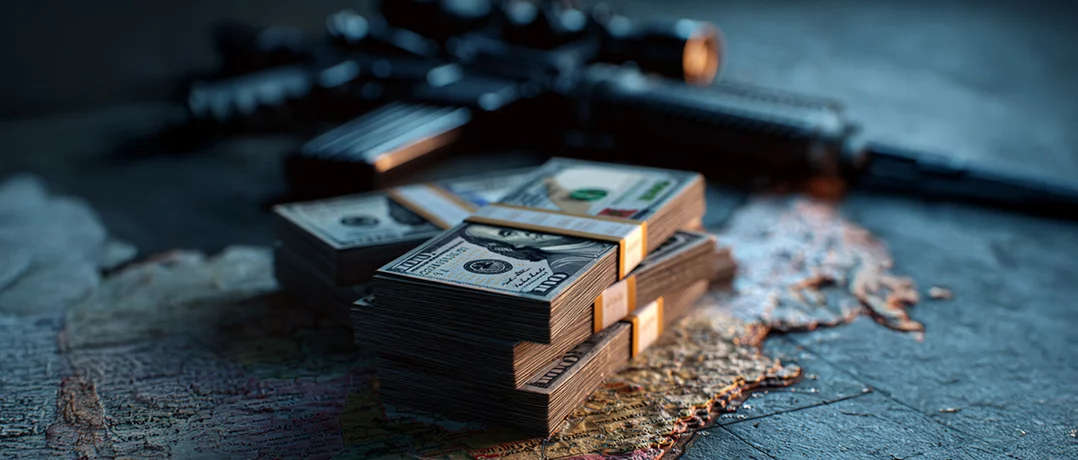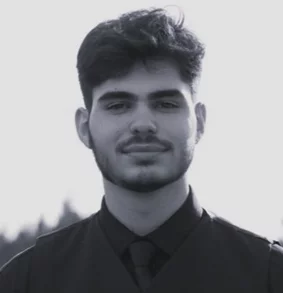Amid Israel’s war with Hezbollah and Lebanon’s collapse, Gulf states are leveraging reconstruction aid to push for Hezbollah’s disarmament, balancing regional diplomacy with strategic economic influence.
Gulf states investing for a Lebanon without Hezbollah’s guns
Gulf states investing for a Lebanon without Hezbollah’s guns


The war that reignited on October 8, 2023, when Hezbollah opened a front against Israel in solidarity with Hamas, has in turn reignited Gulf states’ anxieties. For nearly a year, Lebanon has lived under the shadow of escalation, first limited exchanges along the Blue Line, then Israel’s targeted assassinations of Hezbollah’s leadership, culminating in the killing of Hassan Nasrallah in late September 2025. Israel’s ground invasion of southern Lebanon has since pushed the country to the brink of collapse.
Gulf leverage: aid in exchange for disarmament
For the Gulf states, this crisis has become both a
risk and an opportunity. Across the region, governments are weighing the cost
of prolonged instability against the strategic prize of a Lebanon redefined, one
where the use of force is monopolized by the state.
Officially, the Gulf Cooperation Council (GCC) members are aligned in their calls for de-escalation. Yet behind this cautious diplomacy lies a deeper agenda: conditioning Lebanon’s reconstruction on Hezbollah’s disarmament. Dagher and Martin (2025) with Bloomberg noted that Riyadh, Doha, and Kuwait City have told Lebanon’s new leadership that Gulf funding will flow only if Beirut delivers a credible, time-bound plan to dismantle Hezbollah’s military apparatus and restore state sovereignty.
Diverging Gulf responses to the Lebanon crisis
The Gulf states’ public positions since the 2023
escalation reveal familiar divergences. Kuwait, Oman, and Qatar condemned
Israel’s bombardment of Lebanon and the assassinations of Hezbollah leaders,
echoing a long-standing Arab consensus on proportionality and sovereignty. The
UAE and Saudi Arabia, in contrast, issued restrained statements expressing
“concern” and pledging humanitarian aid, carefully avoiding direct criticism of
Israel.
These differences reflect varying historical
relationships with Hezbollah. Kuwait maintains a wary neutrality rooted in its
domestic Shia balance. Qatar, which once funded postwar reconstruction in
Hezbollah-controlled southern Lebanon after the 2006 war, saw relations sour
over Syria but has recently warmed to the group again, at least rhetorically.
Meanwhile, Saudi Arabia, the UAE, and Bahrain remain firmly antagonistic. They
view Hezbollah as an extension of Iran’s regional project and as a destabilizing
force in Lebanon, Syria, and Yemen.
Despite such divergence, the Gulf is beginning to
coalesce around a pragmatic consensus: Hezbollah’s disarmament is not only a
Lebanese imperative but also a Gulf security interest.
Between 1963 and 2022, Gulf states gave Lebanon at
least $9 billion in grants, excluding loans and investments. That era is over.
Today, Saudi Arabia and Qatar are using the promise of reconstruction to
reshape Lebanon’s political economy and its power structure.
Gulf capitals have linked any new financial
packages to a set of non-negotiable reforms: restructuring the banking sector,
curbing corruption, and, most crucially, disarming Hezbollah. “The kingdom does
not want to invest in a black hole,” said Saudi commentator Ali Shihabi,
summarizing Riyadh’s sentiment.
Thomas Barrack even stated that the Saudi-Qatari
initiative under consideration would establish a major economic zone in
southern Lebanon. The plan envisions port rehabilitation, renewable energy
projects, small business support, and job creation programs. In return, Beirut
would commit to a phased disarmament process, integrating Hezbollah-controlled
areas into civilian governance and economic life.
The Gulf states have decided to pursue the notion of economic leverage over sanctions and isolation. By tying aid to disarmament, the Gulf is betting that prosperity can do what pressure failed to, render Hezbollah’s weapons obsolete. The rationale is simple: if the state can provide services, jobs, and stability in Hezbollah’s strongholds, the group’s social contract weakens.
A delicate balancing act: diplomacy, Iran, and the risk of war
Still, the road to disarmament is fraught with
risks. Hezbollah’s weapons are not merely tools of resistance; they are symbols
of identity and leverage in a deeply fractured polity. Any attempt to strip
them without consensus risks reigniting civil conflict.
Moreover, Iran will not sit idly by as its most
powerful regional ally is dismantled. Tehran’s October 2025 missile strike on
Israel was a reminder that it retains both capability and willingness to
escalate. Gulf capitals, haunted by memories of the 2019 attacks on Saudi oil
facilities, understand that pushing Hezbollah too hard could trigger a broader
confrontation.
This explains their delicate balancing act, pressing for Hezbollah’s demilitarization while simultaneously reassuring Iran of their neutrality, as seen in the October 3 GCC-Iran meeting in Doha.
The message from
the Gulf is clear: Lebanon’s reconstruction will be conditional, but regional
war is not an acceptable price.
If successful, this approach could reshape not
only Lebanon but also Gulf diplomacy itself: an assertive, pragmatic model that
replaces confrontation with calibrated engagement, and war with investment.


